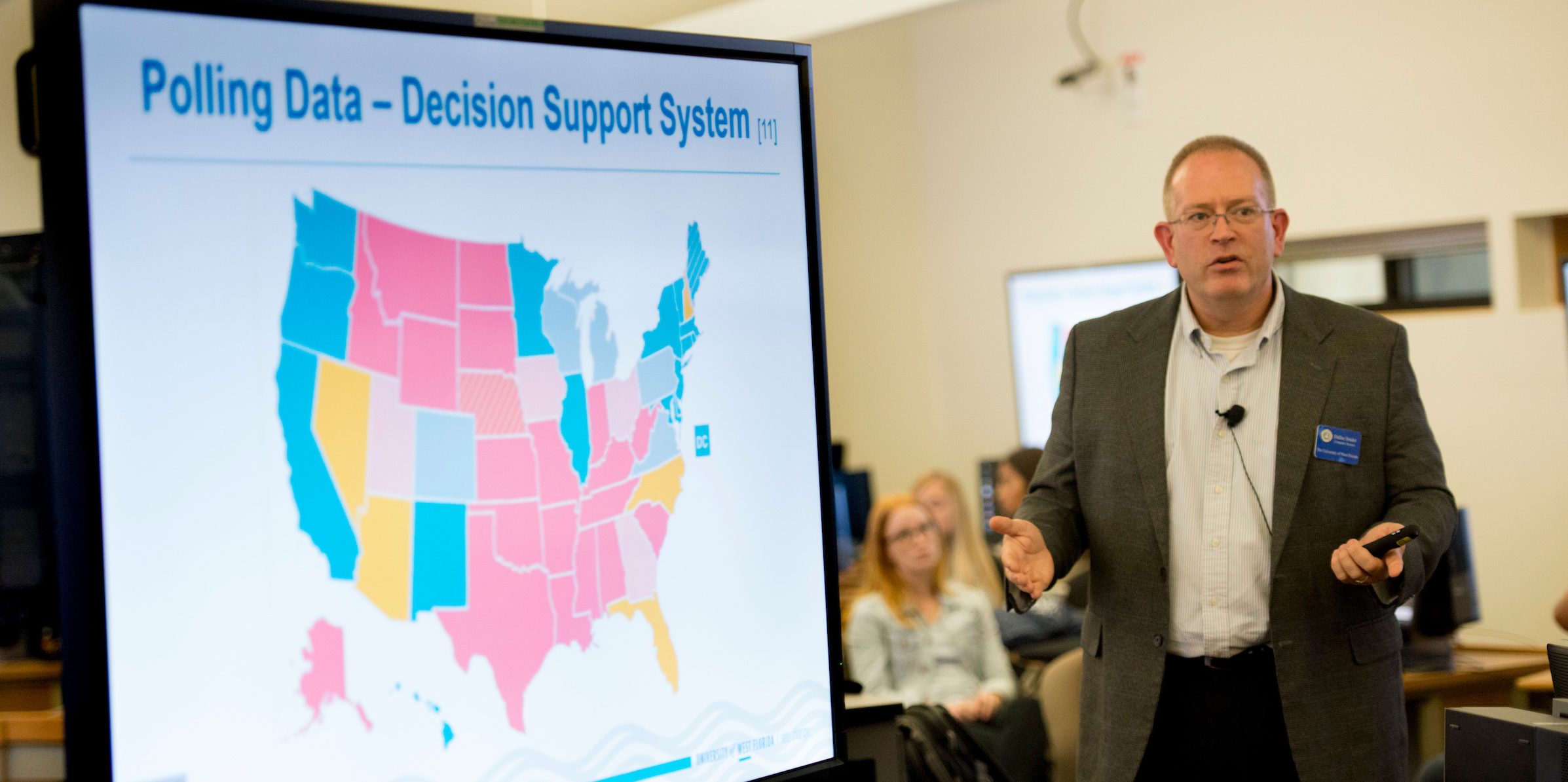UWF Professor Talks About Diversity of Data on Election Day
Pensacola – Dr. Dallas Snider gave an Election Day presentation about the diversity of data, and his thoughts on the pitfalls of voter polling proved prescient given the surprising results of the Nov. 8 presidential race.

Snider, an assistant professor of computer science at the University of West Florida, spoke about all things data as part of the University’s Data Dialogues series of lectures that focuses on data visualizing and analysis in research across disciplines. The UWF Department of Government sponsors the series.
“Just like people are diverse, data too, is diverse,” Snider said.
Part of Snider’s talk focused on polling data and how it was being used by the campaigns in the presidential race between Republican nominee Donald Trump and Democratic contender Hillary Clinton. One of the problems with relying on the polling of potential voters is that they may not always be truthful when surveyed, he said.
“Maybe they feel like they just want to play around – ‘I’m just going to say anything to get you off the phone or hurry up and answer this survey.’”
Another issue with depending on polling data, is how questions are phrased when the surveys are taken.
“Are people being asked, ‘will you vote for Hillary Clinton or will you vote for Donald Trump?’” Snider said. “Are those the only two options that they’re getting? How is that question phrased? Because when they walk into the voting booth, there’s going to be several options.”
Also bringing the polling methods into question is whether the data taken is actually a representative sample of the population, Snider said.
“I’ve read several articles saying that the Latino or Hispanic population is underrepresented in these polls,” Snider said.
Snider pointed out that polling data taken in advance of the Brexit vote, determining whether the United Kingdom would withdraw from the European Union, said the measure would not pass. The referendum did pass.
“Researchers found out that there was this reliance on land-line phones,” Snider said of the Brexit polling. “Why are we still relying on land line phones, when most people don’t have those anymore?”
Snider gave his presentation hours before polls closed on Nov. 8. Trump was shown to be losing the presidential race in most polls leading up to the election, but ended up winning the electoral college over Clinton.
To show the difference in data being used by each campaign, Snider mentioned how Trump was making a last-minute push to try to win Minnesota because his campaign’s polling showed him having a chance to take the state, while Clinton’s did not.
“You’ve got two different campaigns, looking at two different sets of data that have a very large margin of error,” he said.
Snider also brought up how the percentage of the margin of error that’s allowed in polling data would not be acceptable in other fields.
“That margin of error is not acceptable in business (decision support systems), but it’s acceptable in campaigns,” Snider said.
Snider’s presentation also focused on the wide range of data that’s used in various fields. He also talked about how algorithms are being used more to analyze data. Data is often not “one size fits all,” he said.
“The value of the data depends on the context, the population that is represented within the data and also the competitive advantage,” Snider said.



